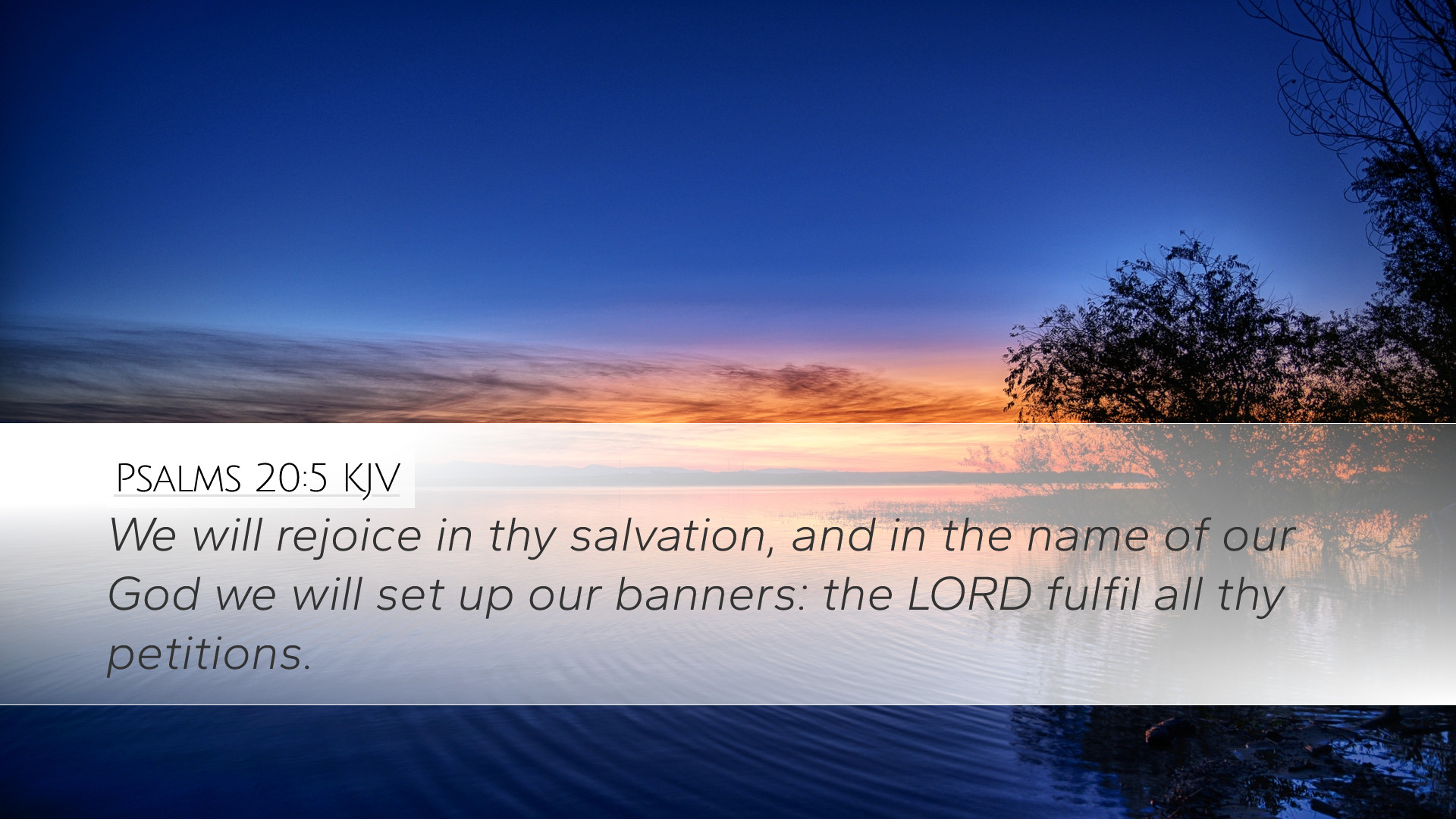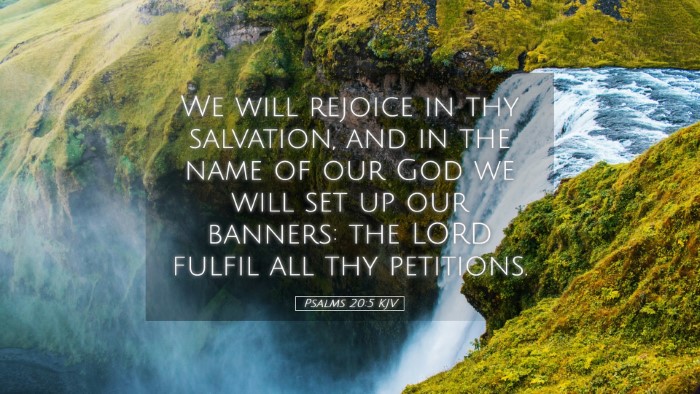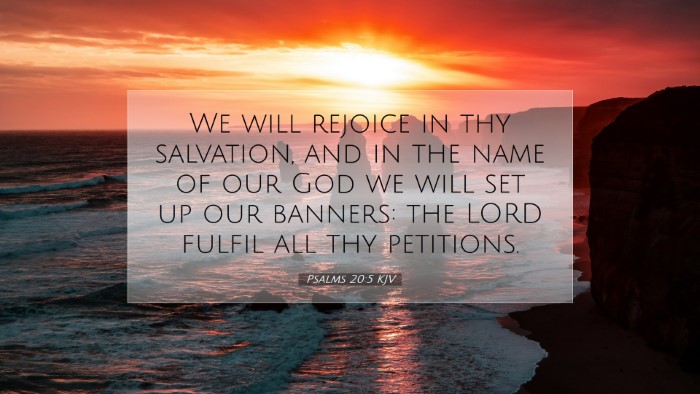Psalms 20:5 Commentary
The verse Psalm 20:5 states: 'We will rejoice in thy salvation, and in the name of our God we will set up our banners: the LORD fulfill all thy petitions.' This verse encapsulates a profound expression of faith, communal support, and a celebration of God’s deliverance. Below are insights derived from various public domain commentaries, focusing on its significance for study and preaching.
Introduction to Psalm 20
Psalms 20 is generally regarded as a royal psalm, possibly rooted in a liturgical context where prayers were offered for the king before going into battle. It reflects the communal faith of Israel as they seek divine help.
Verse Breakdown
Let us consider the components of this verse:
- Rejoicing in Salvation: The psalmist opens with a declaration of joy in the salvation offered by God. This reflects not only a future hope but an immediate response to God's past deliverances.
- The Name of Our God: Invoking the 'name' of God signifies His authority and character. In ancient Israel, a name often represented the essence and power of the person it belonged to.
- Setting Up Banners: This phrase may represent a declaration of faith and united purpose among God's people. Banners were symbols of identity and allegiance, indicating victory and the presence of God among His people.
- Fulfillment of Petitions: The closing plea emphasizes a trust in God's ability to respond to the prayers of His people, underscoring a strong theme of faith and reliance on divine providence.
Theological Insights
Pastoral teachings derived from this verse can be manifold. Experts like Matthew Henry emphasize:
- Joy as a Response: Our response to God's salvation should be characterized by joy. It is a reflection of our understanding of God’s grace and mercy, manifesting a sincere heart of worship.
- The Importance of Community: The collective 'we' showcases the communal aspect of faith. In a theological context, the body of Christ is encouraged to celebrate God's works together, thus strengthening communal bonds.
Albert Barnes' Insights
Albert Barnes provides a robust examination of the cultural implications of banners in this context:
- Symbolism of Banners: Banners symbolize victory, protection, and call for assembly. Within a spiritual context, raising banners in God’s name invites His presence into our lives and battles.
- God’s Faithfulness in Answering Prayers: Barnes notes how the petitions raised by God's people align with past testimonies of His faithfulness, encouraging believers to retain hope in their supplications.
Adam Clarke's Perspective
Adam Clarke highlights the practical applications of this verse:
- Assurance of Salvation: Clarke articulates that assurance of salvation leads to evident rejoicing. For believers today, this means trusting in Christ’s finished work on the cross.
- Collective Worship: The act of lifting up banners can reflect worship, which is not only personal but communal. The notion of standing together in prayer underscores the church’s unity in Christ.
Prayerful Reflection
As pastors and students engage with Psalm 20:5, they are encouraged to adopt the following practices:
- Rejoice in Personal Salvation: Encourage congregants to share personal testimonies that illustrate God’s faithfulness in their lives.
- Promote Unity in Worship: Facilitate avenues for communal worship where the lifting of 'banners' can translate into modern expressions of faith, such as collective prayer groups or community outreach.
Conclusion
Psalm 20:5 is a powerful reminder of the joy found in God’s salvation, the importance of collective identity in Christ, and the assurance that He hears and fulfills our petitions. It calls for a community of faith to express their reliance on God’s power and presence in their lives.


